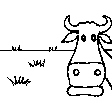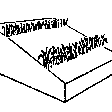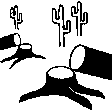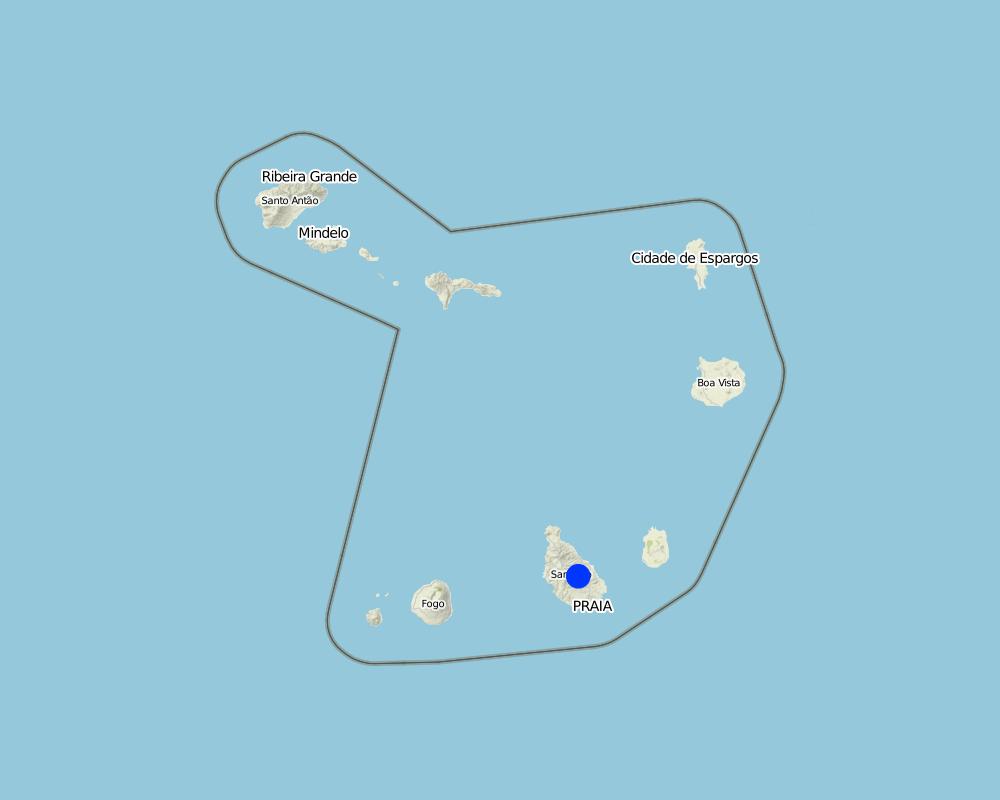Barreiras Vivas de Leucaena [กาบูเวร์ดี]
- ผู้สร้างสรรค์:
- การอัพเดท:
- ผู้รวบรวม: Jacques Tavares
- ผู้เรียบเรียง: –
- ผู้ตรวจสอบ: Fabian Ottiger
Banqueta de linhaço
technologies_1574 - กาบูเวร์ดี
ดูส่วนย่อย
ขยายทั้งหมด ย่อทั้งหมด1. ข้อมูลทั่วไป
1.2 รายละเอียดที่ติดต่อได้ของผู้รวบรวมและองค์กรที่เกี่ยวข้องในการประเมินและการจัดเตรียมทำเอกสารของเทคโนโลยี
ผู้เชี่ยวชาญ SLM:
Varela Larissa
INIDA
กาบูเวร์ดี
ผู้เชี่ยวชาญ SLM:
Bentub Jailson
INIDA
กาบูเวร์ดี
ผู้เชี่ยวชาญ SLM:
Amarós Regla
INIDA
กาบูเวร์ดี
ชื่อขององค์กรซึ่งอำนวยความสะดวกในการทำเอกสารหรือการประเมินเทคโนโลยี (ถ้าเกี่ยวข้อง)
INIDA (INIDA) - กาบูเวร์ดี1.3 เงื่อนไขการใช้ข้อมูลที่ได้บันทึกผ่านทาง WOCAT
ผู้รวบรวมและวิทยากรหลักยอมรับเงื่อนไขเกี่ยวกับการใช้ข้อมูลที่ถูกบันทึกผ่านทาง WOCAT:
ใช่
1.4 การเปิดเผยเรื่องความยั่งยืนของเทคโนโลยีที่ได้อธิบายไว้
เทคโนโลยีที่ได้อธิบายไว้นี้เป็นปัญหาของความเสื่อมโทรมโทรมของที่ดินหรือไม่ จึงไม่ได้รับการยอมรับว่าเป็นเทคโนโลยีเพื่อการจัดการที่ดินอย่างยั่งยืน:
ไม่ใช่
2. การอธิบายลักษณะของเทคโนโลยี SLM
2.1 การอธิบายแบบสั้น ๆ ของเทคโนโลยี
คำจำกัดความของเทคโนโลยี:
Vegetative measure based on the planting of the bush, Leucaena leucocephala, on line along the level curves in the steep slopes
2.2 การอธิบายแบบละเอียดของเทคโนโลยี
คำอธิบาย:
The technique consists of planting rows of Leucaena leucocephala in the level curves along the slopes. This legume has high rate of reproduction and the permanence of their seeds in the soil can reach 10 years before germination. It is very resistant to fire and to pruning. Can reach 4m in height and if not controlled, can invade a field of culture. The plant has great potential for feeding of livestock (protein (21-26% DM), fiber (15-25% of crude cellulose MS) vary depending on the age of the plant)
Purpose of the Technology: The planting in curves level is to achieve the stabilization and restoration of degraded soil. The technique reduces the runoff, retain sediment, solid, incorporates greater quantity of organic matter in the soil, promotes infiltration and covering the soil with vegetation.
Establishment / maintenance activities and inputs: Its installation requires a medium level of technical knowledge to marking the curves level where it will install. Planting is done in a simple way of transplanting a plant nursery to the ground. It is easy to spread a culture, its management after the fruit must be rigorous, ensuring that the fields become invasive. The early harvest fruit is an option to take into consideration when implementing this technique. The bar between the plant is 1m and the distance between the bands is associated with 5m.Sometimes it is ssociated with olds small punch to rehabilitating that structure.
Natural / human environment: The top of the slopes where they practice pluvial agriculture is more susceptible to soil erosion because of its steep slopes and the inappropriate cultivation techniques carried out there, is the area of higher prevalence of this technique. The production of Leucaena is used both for animal feed as a source for energy (firewood).
2.3 รูปภาพของเทคโนโลยี
2.5 ประเทศภูมิภาค หรือสถานที่ตั้งที่เทคโนโลยีได้นำไปใช้และได้รับการครอบคลุมโดยการประเมินนี้
ประเทศ:
กาบูเวร์ดี
ภูมิภาค/รัฐ/จังหวัด:
Santiago / Cabo Verde
ข้อมูลจำเพาะเพิ่มเติมของสถานที่ตั้ง :
Ribeira Seca
Map
×2.6 วันที่การดำเนินการ
ถ้าไม่รู้ปีที่แน่นอน ให้ระบุวันที่โดยประมาณ:
- 10-50 ปี
2.7 คำแนะนำของเทคโนโลยี
ให้ระบุว่าเทคโนโลยีถูกแนะนำเข้ามาอย่างไร:
- ทางโครงการหรือจากภายนอก
ความคิดเห็น (ประเภทของโครงการ เป็นต้น) :
It was introduced by FIDA project around 1990.
3. การจัดประเภทของเทคโนโลยี SLM
3.1 วัตถุประสงค์หลักของเทคโนโลยี
- ปรับปรุงการผลิตให้ดีขึ้น
- ลด ป้องกัน ฟื้นฟู การเสื่อมโทรมของที่ดิน
- สร้างผลกระทบทางด้านเศรษฐกิจที่เป็นประโยชน์
3.2 ประเภทของการใช้ที่ดินในปัจจุบันที่ได้นำเทคโนโลยีไปใช้

พื้นที่ปลูกพืช
- การปลูกพืชล้มลุกอายุปีเดียว

ทุ่งหญ้าเลี้ยงสัตว์
แสดงความคิดเห็น:
Major land use problems (compiler’s opinion): The loss of soil by runoff, influenced by its low coverage, reducing their fertility and their thickness
Major land use problems (land users’ perception): The loss of soil by runoff, low productive soils, low organic matter
3.3 ข้อมูลเพิ่มเติมเกี่ยวกับการใช้ที่ดิน
จำนวนของฤดูเพาะปลูกต่อปี:
- 1
ระบุ:
Longest growing period in days: 90, Longest growing period from month to month: Aug - Oct
3.4 กลุ่ม SLM ที่ตรงกับเทคโนโลยีนี้
- การปรับปรุงดิน / พืชคลุมดิน
- มาตรการปลูกพืชขวางความลาดชัน (cross-slope measure)
3.5 กระจายตัวของเทคโนโลยี
แสดงความคิดเห็น:
Total area covered by the SLM Technology is 4.8 km2.
The technology is used, mostly in arid and semi arid zones, mainly in the sous bassins of the Godim. In sous bassins of Longueira has been increasingly important.
3.6 มาตรการ SLM ที่ประกอบกันเป็นเทคโนโลยี

มาตรการอนุรักษ์ด้วยวิธีพืช
- V2: หญ้าและไม้ยืนต้น
แสดงความคิดเห็น:
Type of vegetative measures: aligned: -linear
3.7 รูปแบบหลักของการเสื่อมโทรมของที่ดินที่ได้รับการแก้ไขโดยเทคโนโลยี

การกัดกร่อนของดินโดยน้ำ
- Wt (Loss of topsoil): การสูญเสียดินชั้นบนหรือการกัดกร่อนที่ผิวดิน
- Wg (Gully erosion): การกัดกร่อนแบบร่องธารหรือการทำให้เกิดร่องน้ำเซาะ

การเสื่อมโทรมของดินทางด้านชีวภาพ
- Bc (Reduction of vegetation cover): การลดลงของจำนวนพืชที่ปกคลุมดิน
- Bq (Quantity/biomass decline): การลดลงของปริมาณหรือมวลชีวภาพ
แสดงความคิดเห็น:
Main causes of degradation: soil management (It is cultivated corn and peanuts on land slopes very pronounced and boot up the plants by the root in end of the cycle), disturbance of water cycle (infiltration / runoff) (There are many crusts exposed, because of loss of soil, reducing infiltration of water), poverty / wealth (Leads sensitized peoples to advocate action against the landscape for survival of the family), education, access to knowledge and support services (Knowledge and technical training increase the options for means of survival of the community that acts on the forest, the degree of attending school is low and the illiteracy rate is 17%)
Secondary causes of degradation: overgrazing (Creation of the wild animals compact the soil, destroying the structures for the conservation of soil and water exists, and creates conflict), Heavy / extreme rainfall (intensity/amounts) (Sometimes heavy rains (intensity) that occur associated with poor vegetation cover, increase soil erosion), governance / institutional (Lack of applicability of the laws that manage the land)
3.8 การป้องกัน การลดลง หรือการฟื้นฟูความเสื่อมโทรมของที่ดิน
ระบุเป้าหมายของเทคโนโลยีกับความเสื่อมโทรมของที่ดิน:
- ป้องกันความเสื่อมโทรมของที่ดิน
- ลดความเสื่อมโทรมของดิน
4. ข้อมูลจำเพาะด้านเทคนิค กิจกรรมการนำไปปฏิบัติใช้ ปัจจัยนำเข้า และค่าใช้จ่าย
4.2 ข้อมูลจำเพาะด้านเทคนิคและการอธิบายแบบแปลนทางเทคนิค
Barreiras Vivas of Leucaena. Shows the coverage of the soil made by its roots.
Location: Praia. Cabo Verde
Technical knowledge required for field staff / advisors: moderate (It's needed sufficient knowledge to make a mark in level curves)
Technical knowledge required for land users: low
Main technical functions: stabilisation of soil (eg by tree roots against land slides), sediment retention / trapping, sediment harvesting
Secondary technical functions: control of raindrop splash, reduction of slope angle, reduction of slope length, increase in organic matter, increase of infiltration
Aligned: -linear
Vegetative material: T : trees / shrubs
Number of plants per (ha): 5000
Vertical interval between rows / strips / blocks (m): 2
Spacing between rows / strips / blocks (m): 3-5
Vertical interval within rows / strips / blocks (m): 0.4
Trees/ shrubs species: Leucaena leucocephala
Slope (which determines the spacing indicated above): 30-60%
Gradient along the rows / strips: 50%
4.3 ข้อมูลทั่วไปเกี่ยวกับการคำนวณปัจจัยนำเข้าและค่าใช้จ่าย
อื่นๆ หรือสกุลเงินประจำชาติ (ระบุ):
ECV
ระบุอัตราแลกเปลี่ยนจากดอลลาร์สหรัฐเป็นสกุลเงินท้องถิ่น (ถ้าเกี่ยวข้อง) คือ 1 เหรียญสหรัฐ =:
80.0
ระบุค่าเฉลี่ยของค่าจ้างในการจ้างแรงงานต่อวัน:
3.12
4.4 กิจกรรมเพื่อการจัดตั้ง
| กิจกรรม | ประเภทของมาตรการ | ช่วงเวลาดำเนินการ | |
|---|---|---|---|
| 1. | Market of the level curves(5 to 5m) | ด้วยวิธีพืช | June |
| 2. | Planting | ด้วยวิธีพืช | end July |
4.5 ค่าใช้จ่ายของปัจจัยนำเข้าที่จำเป็นสำหรับการจัดตั้ง
| ปัจจัยนำเข้า | หน่วย | ปริมาณ | ค่าใช้จ่ายต่อหน่วย | ค่าใช้จ่ายทั้งหมดต่อปัจจัยนำเข้า | %ของค่าใช้จ่ายที่ก่อให้เกิดขึ้นโดยผู้ใช้ที่ดิน | |
|---|---|---|---|---|---|---|
| แรงงาน | Labour | ha | 1.0 | 171.85 | 171.85 | |
| อุปกรณ์ | Tools | ha | 1.0 | 62.5 | 62.5 | 100.0 |
| วัสดุด้านพืช | Seedlings | ha | 1.0 | 3750.0 | 3750.0 | |
| ค่าใช้จ่ายทั้งหมดของการจัดตั้งเทคโนโลยี | 3984.35 | |||||
แสดงความคิดเห็น:
Duration of establishment phase: 2 month(s)
4.6 การบำรุงรักษาสภาพหรือกิจกรรมที่เกิดขึ้นเป็นประจำ
| กิจกรรม | ประเภทของมาตรการ | ช่วงระยะเวลา/ความถี่ | |
|---|---|---|---|
| 1. | Harvest of the leucaena fruits before theirs ripening | ด้วยวิธีพืช | 1 time, in November |
| 2. | Pruning | ด้วยวิธีพืช | 1 time in April to May |
4.7 ค่าใช้จ่ายของปัจจัยนำเข้าและกิจกรรมที่เกิดขึ้นเป็นประจำที่ต้องการการบำรุงรักษา (ต่อปี)
| ปัจจัยนำเข้า | หน่วย | ปริมาณ | ค่าใช้จ่ายต่อหน่วย | ค่าใช้จ่ายทั้งหมดต่อปัจจัยนำเข้า | %ของค่าใช้จ่ายที่ก่อให้เกิดขึ้นโดยผู้ใช้ที่ดิน | |
|---|---|---|---|---|---|---|
| แรงงาน | Labour | ha | 1.0 | 6.24 | 6.24 | 100.0 |
| อุปกรณ์ | Tools | ha | 1.0 | 5.0 | 5.0 | 100.0 |
| ค่าใช้จ่ายทั้งหมดของการบำรุงรักษาสภาพเทคโนโลยี | 11.24 | |||||
แสดงความคิดเห็น:
Machinery/ tools: Cavale used to level the surfaces; Knife; machete
4.8 ปัจจัยสำคัญที่สุดที่มีผลกระทบต่อค่าใช้จ่าย
ปัจจัยสำคัญที่สุดที่มีผลกระทบต่อค่าใช้จ่ายต่างๆ:
The cost of seedlings is the more diterminate cost, but the seedlings is produced by the project in arboretum, before de planting when it,s transplanted to the soil. The cust of the production in arboretum is more less than the seedlings cust.
5. สิ่งแวดล้อมทางธรรมชาติและของมนุษย์
5.1 ภูมิอากาศ
ฝนประจำปี
- < 250 ม.ม.
- 251-500 ม.ม.
- 501-750 ม.ม.
- 751-1,000 ม.ม.
- 1,001-1,500 ม.ม.
- 1,501-2,000 ม.ม.
- 2,001-3,000 ม.ม.
- 3,001-4,000 ม.ม.
- > 4,000 ม.ม.
ระบุปริมาณน้ำฝนเฉลี่ยรายปี (ถ้ารู้) :หน่วย ม.ม.
800.00
เขตภูมิอากาศเกษตร
- ชื้น
- กึ่งชุ่มชื้น
- กึ่งแห้งแล้ง
- แห้งแล้ง
Thermal climate class: tropics. average temperature around 26 º C. The exposure and altitude are factors diterminantes for agroclimatic estratização. the higher areas and targeted to the SE are more humid.
5.2 สภาพภูมิประเทศ
ค่าเฉลี่ยความลาดชัน:
- ราบเรียบ (0-2%)
- ลาดที่ไม่ชัน (3-5%)
- ปานกลาง (6-10%)
- เป็นลูกคลื่น (11-15%)
- เป็นเนิน (16-30%)
- ชัน (31-60%)
- ชันมาก (>60%)
ธรณีสัณฐาน:
- ที่ราบสูง/ที่ราบ
- สันเขา
- ไหล่เขา
- ไหล่เนินเขา
- ตีนเนิน
- หุบเขา
ระดับความสูง:
- 0-100 เมตร
- 101-500 เมตร
- 501-1,000 เมตร
- 1,001-1,500 เมตร
- 1,501-2,000 เมตร
- 2,001-2,500 เมตร
- 2,501-3,000 เมตร
- 3,001-4,000 เมตร
- > 4,000 เมตร
ความคิดเห็นและข้อมูลจำเพาะเพิ่มเติมเรื่องสภาพภูมิประเทศ:
Altitudinal zone: 101-500 m a.s.l. (Ranked 1, this value belonging to the stratum semi-arid to sub-humid) and 501-1000 m a.s.l. (ranked 2, includes mainly the cliffs and ridges)
Landforms: Mountain slopes (ranked 1, technique applied to both concave and convex situations) and ridges (ranked 2, the hazards associeted of a convex situations, does not allow its application in)
Slopes on average: Steep (ranked 1, the SE-NE part of Ribeira Seca is the most sloping) and hilly (ranked 2)
5.3 ดิน
ค่าเฉลี่ยความลึกของดิน:
- ตื้นมาก (0-20 ซ.ม.)
- ตื้น (21-50 ซ.ม.)
- ลึกปานกลาง (51-80 ซ.ม.)
- ลึก (81-120 ซ.ม.)
- ลึกมาก (>120 ซ.ม.)
เนื้อดิน (ดินชั้นบน):
- หยาบ/เบา (ดินทราย)
- ปานกลาง (ดินร่วน ทรายแป้ง)
อินทรียวัตถุในดิน:
- ปานกลาง (1-3%)
- ต่ำ (<1%)
(ถ้ามี) ให้แนบคำอธิบายเรื่องดินแบบเต็มหรือระบุข้อมูลที่มีอยู่ เช่น ชนิดของดิน ค่า pH ของดินหรือความเป็นกรดของดิน ความสามารถในการแลกเปลี่ยนประจุบวก ไนโตรเจน ความเค็ม เป็นต้น:
Soil depth on average: Very shallow (ranked 1, this depth is associated with the sloping hillsides used for rainfull agriculture) and shallow (ranked 2, found mainly in the valley bottoms of the downstream)
Soil texture: Medium (ranked 1, the soil texture varies with the physiographic position of the area. The Argyle decreases when climbs the slopes(15,4 to 15); the lime also decreases - fine lime (15,3 to 14,6), thick lime (11,0 to 9) and coarse/light (ranked 2, the soil overlay mainly basaltic rocks, piroclastic, conglomerates and aluvial deposits)
Soil fertility: Medium (ranked 1) and low (ranked 2)
Soil drainage/infiltration: Medium (ranked 1, It's compatness coefficient is 1,31) and good (ranked 2)
Soil water storage capacity: Medium
5.4 ความเป็นประโยชน์และคุณภาพของน้ำ
ระดับน้ำใต้ดิน:
5-50 เมตร
น้ำไหลบ่าที่ผิวดิน:
ไม่ดีหรือไม่มีเลย
คุณภาพน้ำ (ที่ยังไม่ได้บำบัด):
เป็นน้ำเพื่อการดื่มที่ไม่ดี (จำเป็นต้องได้รับการบำบัด)
ความคิดเห็นและข้อมูลจำเพาะเพิ่มเติมเรื่องคุณภาพและปริมาณน้ำ:
Ground water table: 5-50m (Ranked 1, in rain months, it is more superficial than in the dry months) and <50m (ranked 2)
Availability of surface water: Poor/none (It existe just when it's raining)
Water quality (untreated): poor drinking water (treatment required, salinization of water due to over exploitation of wells and boreholes, ranked 1) and good drinking water (ranked 2)
5.5 ความหลากหลายทางชีวภาพ
ความหลากหลายทางชนิดพันธุ์:
- ปานกลาง
ความคิดเห็นและข้อมูลจำเพาะเพิ่มเติมของความหลากหลายทางชีวภาพ:
In the occidental side of the área, where the hotspot, the landscape is greener and much rich in species (fauna and flora). Nevertheless, on the side facing W or the oriental side, the ecosystems are
5.6 ลักษณะของผู้ใช้ที่ดินที่นำเทคโนโลยีไปปฏิบัติใช้
แนวทางการตลาดของระบบการผลิต:
- เพื่อการยังชีพ (หาเลี้ยงตนเอง)
- ผสม (การเลี้ยงชีพ/ทำการค้า)
รายได้ที่มาจากนอกฟาร์ม:
- > 50% ของรายได้ทั้งหมด
ระดับของความมั่งคั่งโดยเปรียบเทียบ:
- จน
- พอมีพอกิน
เป็นรายบุคคล/ครัวเรือน:
- เป็นรายบุคคล/ครัวเรือน
ระดับของการใช้เครื่องจักรกล:
- งานที่ใช้แรงกาย
- การใช้เครื่องจักรหรือเครื่องยนต์
เพศ:
- หญิง
- ชาย
ระบุลักษณะอื่นๆที่เกี่ยวข้องของผู้ใช้ที่ดิน:
Land users applying the Technology are mainly common / average land users
Population density: 200-500 persons/km2
Annual population growth: > 4%
(With income supirior than $10000 by year).
(Income more or equal than $7500 by year).
(Income equal or less than $3750 by year).
(Income less than $2000 by year).
Off-farm income specification: The land users who apply the technology are mostly exclarecidas and more young people than those who did not implement the technique
Market orientation: Subsistence (ranked 1, it's produced by the poors end very poor land users) and mixed (ranked 2, The majurity of thats production is maked by the richs end the average land users)
Level of mechanization: Manual labour (ranked 1, it's used the family manual labour to the farms works in subsistence production) and mechanised (ranked 2, it´s not much used because it's expensive, and so much land are not gatway to them)
5.7 พื้นที่เฉลี่ยของที่ดินที่เป็นเจ้าของหรือเช่าโดยผู้ใช้ที่ดินที่นำเทคโนโลยีไปปฏิบัติใช้
- < 0.5 เฮกตาร์
- 0.5-1 เฮกตาร์
- 1-2 เฮกตาร์
- 2-5 เฮกตาร์
- 5-15 เฮกตาร์
- 15-50 เฮกตาร์
- 50-100 เฮกตาร์
- 100-500 เฮกตาร์
- 500-1,000 เฮกตาร์
- 1,000-10,000 เฮกตาร์
- >10,000 เฮกตาร์
พิจารณาว่าเป็นขนาดเล็ก กลาง หรือขนาดใหญ่ (ซึ่งอ้างอิงถึงบริบทระดับท้องถิ่น):
- ขนาดกลาง
แสดงความคิดเห็น:
1-2 ha (Ranked 1, it's used by poors and verry poors land users)
2-5 ha ( Ranked 2, the average and the richs land users have more ha)
5.8 กรรมสิทธิ์ในที่ดิน สิทธิในการใช้ที่ดินและสิทธิในการใช้น้ำ
กรรมสิทธิ์ในที่ดิน:
- รัฐ
- รายบุคคล ได้รับสิทธิครอบครอง
สิทธิในการใช้ที่ดิน:
- รายบุคคล
สิทธิในการใช้น้ำ:
- เกี่ยวกับชุมชน (ถูกจัดระเบียบ)
- รายบุคคล
แสดงความคิดเห็น:
The land uses is majurity esed by the sistem of rent a farm. Low percentage of owners, is land users of theirs area
5.9 การเข้าถึงบริการและโครงสร้างพื้นฐาน
สุขภาพ:
- จน
- ปานกลาง
- ดี
การศึกษา:
- จน
- ปานกลาง
- ดี
ความช่วยเหลือทางด้านเทคนิค:
- จน
- ปานกลาง
- ดี
การจ้างงาน (เช่น ภายนอกฟาร์ม):
- จน
- ปานกลาง
- ดี
ตลาด:
- จน
- ปานกลาง
- ดี
พลังงาน:
- จน
- ปานกลาง
- ดี
ถนนและการขนส่ง:
- จน
- ปานกลาง
- ดี
น้ำดื่มและการสุขาภิบาล:
- จน
- ปานกลาง
- ดี
บริการด้านการเงิน:
- จน
- ปานกลาง
- ดี
6. ผลกระทบและสรุปคำบอกกล่าว
6.1 ผลกระทบในพื้นที่ดำเนินการ (On-site) จากการใช้เทคโนโลยี
ผลกระทบทางด้านเศรษฐกิจและสังคม
การผลิต
การผลิตพืชผล
การผลิตพืชที่ใช้เลี้ยงปศุสัตว์
คุณภาพพืชที่ใช้เลี้ยงปศุสัตว์
การผลิตสัตว์
พื้นที่สำหรับการผลิต
แสดงความคิดเห็น/ระบุ:
It's needed a little area to be implanted the tecnique
รายได้และค่าใช้จ่าย
ค่าใช่จ่ายของปัจจัยการผลิตทางการเกษตร
แสดงความคิดเห็น/ระบุ:
The manegement of the Leucaena have a litle cost
รายได้จากฟาร์ม
ผลกระทบด้านสังคมวัฒนธรรมอื่น ๆ
ความมั่นคงด้านอาหาร / พึ่งตนเองได้
สถานการณ์ด้านสุขภาพ
แสดงความคิดเห็น/ระบุ:
The grass of leucaena become dengerous to the cattle health if it´s used excessive
SLM หรือความรู้เรื่องความเสื่อมโทรมของที่ดิน
Improved livelihoods and human well-being
แสดงความคิดเห็น/ระบุ:
Before the establishment of the tecnologie occour education programs to sencibilizate the comuty to agreed to the tecnoogie and it make them more cleared.
ผลกระทบด้านนิเวศวิทยา
วัฐจักรน้ำหรือน้ำบ่า
ปริมาณน้ำ
การระเหย
ดิน
สิ่งปกคลุมดิน
การสูญเสียดิน
การอัดแน่นของดิน
อินทรียวัตถุในดิน/ต่ำกว่าดินชั้น C
ลดความเสี่ยงของภัยพิบัติ
ความเร็วของลม
ผลกระทบด้านนิเวศวิทยาอื่น ๆ
Competition
แสดงความคิดเห็น/ระบุ:
Reduces the availability of water and nutrients to crops
6.2 ผลกระทบนอกพื้นที่ดำเนินการ (Off-site) จากการใช้เทคโนโลยี
การไหลของน้ำคงที่และสม่ำเสมอในช่วงฤดูแล้ง
ตะกอนที่ถูกพัดพามาโดยลม
6.3 การเผชิญและความตอบสนองของเทคโนโลยีต่อการเปลี่ยนแปลงสภาพภูมิอากาศที่ค่อยเป็นค่อยไป และสภาพรุนแรงของภูมิอากาศ / ภัยพิบัติ (ที่รับรู้ได้โดยผู้ใช้ที่ดิน)
การเปลี่ยนแปลงสภาพภูมิอากาศที่ค่อยเป็นค่อยไป
การเปลี่ยนแปลงสภาพภูมิอากาศที่ค่อยเป็นค่อยไป
| ฤดู | ประเภทของการเปลี่ยนแปลงสภาพภูมิอากาศที่ค่อยเป็นค่อยไป และสภาพรุนแรงของภูมิอากาศ | เทคโนโลยีมีวิธีการรับมืออย่างไร | |
|---|---|---|---|
| อุณหภูมิประจำปี | เพิ่มขึ้น | ดี |
สภาพรุนแรงของภูมิอากาศ (ภัยพิบัติ)
ภัยพิบัติทางอุตุนิยมวิทยา
| เทคโนโลยีมีวิธีการรับมืออย่างไร | |
|---|---|
| พายุลมประจำท้องถิ่น | ดี |
ภัยพิบัติจากสภาพภูมิอากาศ
| เทคโนโลยีมีวิธีการรับมืออย่างไร | |
|---|---|
| ภัยจากฝนแล้ง | ไม่ทราบ |
ภัยพิบัติจากน้ำ
| เทคโนโลยีมีวิธีการรับมืออย่างไร | |
|---|---|
| น้ำท่วมตามปกติ (แม่น้ำ) | ดี |
6.4 การวิเคราะห์ค่าใช้จ่ายและผลประโยชน์ที่ได้รับ
ผลประโยชน์ที่ได้รับเปรียบเทียบกับค่าใช้จ่ายในการจัดตั้งเป็นอย่างไร (จากมุมมองของผู้ใช้ที่ดิน)
ผลตอบแทนระยะสั้น:
ด้านลบเล็กน้อย
ผลตอบแทนระยะยาว:
ด้านบวก
ผลประโยชน์ที่ได้รับเปรียบเทียบกับค่าใช้จ่ายในการบำรุงรักษาหรือต้นทุนที่เกิดขึ้นซ้ำอีก เป็นอย่างไร (จากมุมมองของผู้ใช้ที่ดิน)
ผลตอบแทนระยะสั้น:
เป็นกลางหรือสมดุล
ผลตอบแทนระยะยาว:
ด้านบวก
แสดงความคิดเห็น:
The maintenance costs occur in the some time with the benefits of the tecnique are feeling by the land user
6.5 การปรับตัวของเทคโนโลยี
ถ้ามีข้อมูลให้บอกปริมาณด้วย (จำนวนของครัวเรือนหรือครอบคลุมพื้นที่):
375 households and 100% of the area covered
แสดงความคิดเห็น:
85% of land user families have adopted the Technology with external material support
320 land user families have adopted the Technology with external material support
Comments on acceptance with external material support: The maintenance costs occur in the some time with the benefits of the tecnique are feeling by the land user
15% of land user families have adopted the Technology without any external material support
53 land user families have adopted the Technology without any external material support
Comments on spontaneous adoption: Someone who have implimented the tecnology with external support, today, they make it in others parcels of land voluntarily, like some others that never receive any external support
There is a moderate trend towards spontaneous adoption of the Technology
Comments on adoption trend: There are some land users that don't like that tecnology, but 80% who implement it says that it's ggod and that thesecret is a good manegement
6.7 จุดแข็ง / ข้อได้เปรียบ / โอกาสของเทคโนโลยี
| จุดแข็ง / ข้อได้เปรียบ / โอกาสในทัศนคติของผู้ใช้ที่ดิน |
|---|
| Stabilizes the soil, and increases the organic matter |
| Provides forage green almost all year for cattle. Once dead, produces firewood |
| จุดแข็ง / ข้อได้เปรียบ / โอกาสในทัศนคติของผู้รวบรวมหรือวิทยากรหลัก |
|---|
| Retencion of sidement |
| Soil stabilization and improvement of its structure |
6.8 จุดอ่อน / ข้อเสียเปรียบ / ความเสี่ยงของเทคโนโลยีและวิธีการแก้ไข
| จุดอ่อน / ข้อเสียเปรียบ / ความเสี่ยงในทัศนคติของผู้ใช้ที่ดิน | มีวิธีการแก้ไขได้อย่างไร |
|---|---|
| Reduction in of the cultivation area , when the Leucaena invade the field. | Be always alert to the operations of Leucaenas punch. |
| จุดอ่อน / ข้อเสียเปรียบ / ความเสี่ยงในทัศนคติของผู้รวบรวมหรือวิทยากรหลัก | มีวิธีการแก้ไขได้อย่างไร |
|---|---|
| Requires a strict maintenance, so that they are spread and infest the entire agricultural field | Technical assistance to farmers, warning them, through community radio stations, the arrival of the harvest season of the pods of Leucaena and the other cultural operations due |
| Its control is extremely difficult and costly in terms of resistance to the kind of garden and fire | |
| It can generate conflict between users of adjacent land , because its propagacion is easy |
7. การอ้างอิงและการเชื่อมต่อ
7.1 วิธีการและแหล่งข้อมูล
- ไปเยี่ยมชมภาคสนาม การสำรวจพื้นที่ภาคสนาม
- การสัมภาษณ์กับผู้ใช้ที่ดิน
7.2 การอ้างอิงถึงสิ่งตีพิมพ์
หัวข้อ, ผู้เขียน, ปี, หมายเลข ISBN:
Cape Verde water and soil consevation/ Sabino, António Advino,1984
ชื่อเรื่อง ผู้เขียน ปี ISBN:
Cape Verde
หัวข้อ, ผู้เขียน, ปี, หมายเลข ISBN:
Desertification at the Santiago Island, Desire, 2008
ชื่อเรื่อง ผู้เขียน ปี ISBN:
Cape Verde
หัวข้อ, ผู้เขียน, ปี, หมายเลข ISBN:
QUIBB 2007, INE, 2007
ชื่อเรื่อง ผู้เขียน ปี ISBN:
Cape Verde
ลิงก์และโมดูล
ขยายทั้งหมด ย่อทั้งหมดลิงก์
ไม่มีลิงก์
โมดูล
ไม่มีโมดูล


